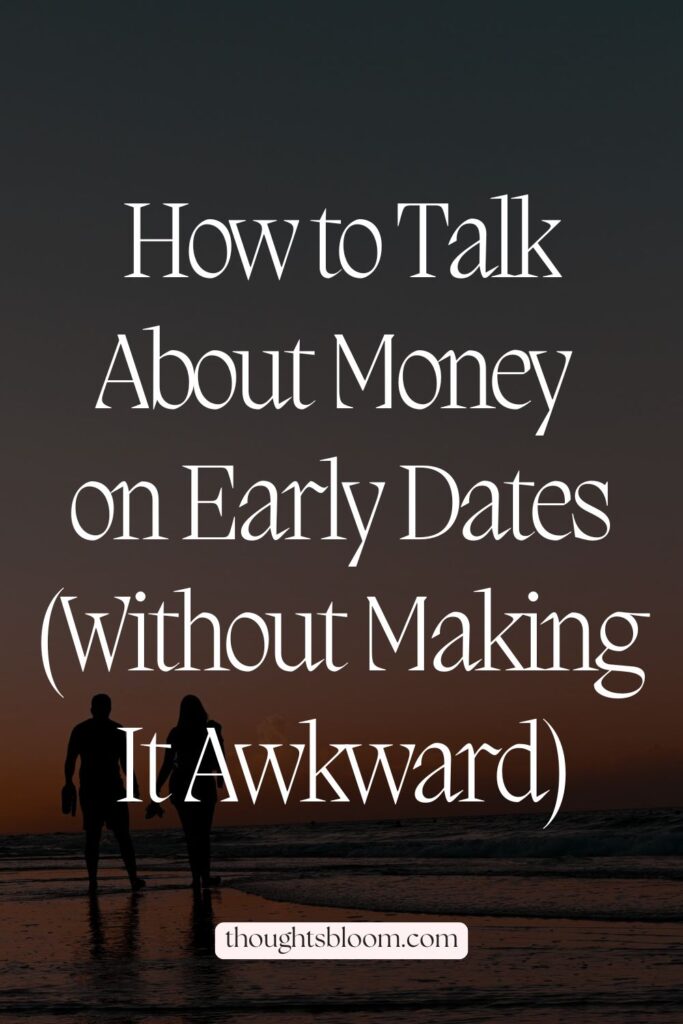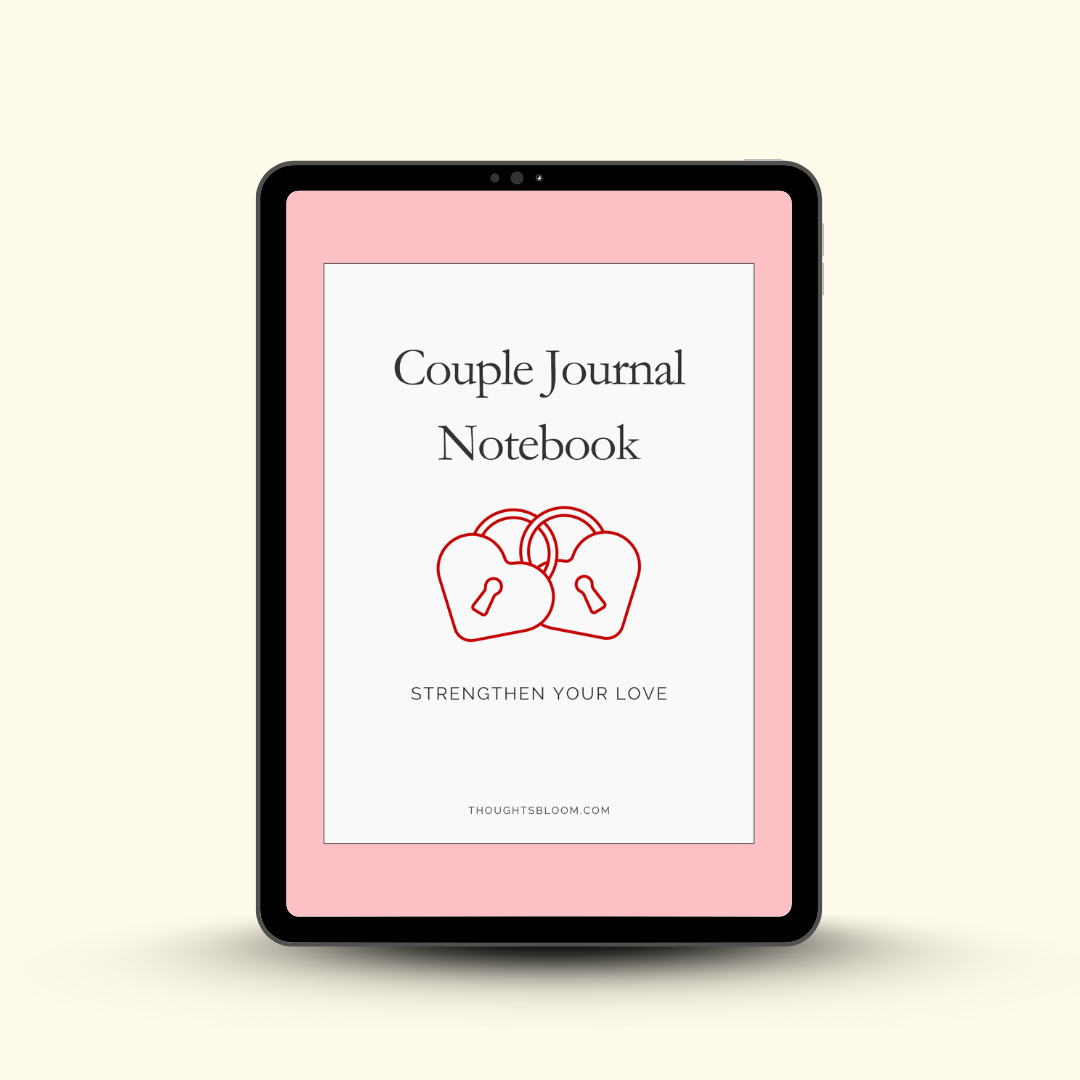How to Talk About Money on the First Few Dates Without Killing the Vibe
Money talks might not sound sexy, but silence about it can end what could’ve been a great connection.
Money. The one topic most people tiptoe around on early dates—right after politics and exes.
We’re told “don’t bring it up too soon,” yet financial habits are one of the biggest indicators of compatibility. The truth?
You don’t need to avoid the topic. You just need to read the room and frame it right.
This post breaks down how to talk about money in those first few dates in a way that feels natural, playful, and emotionally intelligent. No awkward interrogations. No mood-killing lectures. Just honest, confident connection.
So, let’s get into it!
Why Money Matters So Much (Even Early On)
You can learn a lot about someone from how they handle money. Not just what they spend, but what they value.
Money reveals priorities, discipline, generosity, and comfort levels with vulnerability. It’s not just about “who pays,” it’s about how each person sees partnership, security, and lifestyle.
It’s easy to think, “we’ll figure that part out later.”
But if you date for months before having that conversation, it might result in an emotional whiplash.
The Golden Rule of Money Talks on Dates
The worst way to talk about money early on is to turn it into an interrogation.
The best way?
Treat it like any other life topic—something to share stories about, not defend yourself over.
When you ask, “So, how do you handle money?” It sounds like an audit.
But if you say, “I’ve been trying to get better at budgeting lately. I swear half my income disappears on food delivery,” you’re opening a door.
You’re sharing something personal but in a casual way. This invites them to join, not justify.
They might laugh, admit they do the same, or share their own money struggle or wins. And suddenly, the vibe isn’t tense, it’s human.
How to Talk About Money on a Date
Looking for practical tips on how to make money talks comfortable with your date? Here are nine tips to keep it light, not loaded.
Tip #1: Watch How You Both Handle “The Check Moment”
It’s the oldest money scene in dating history. Who reaches first? Who hesitates? Who insists?
Now, there’s no single “right” answer here. But the energy during that moment tells a story.
- Do they assume you’ll pay without asking?
- Do they offer, or suggest splitting, or at least express appreciation?
- Do they treat it like a gesture of kindness, or a transaction?
You can learn more from that one moment than any “what’s your salary?” question could ever tell you.
And if you’re the one paying, try to do it without making it feel like leverage.
A genuine, “I’ve got this one, you can get the next,” keeps things generous and mutual. It says you value connection, not scorekeeping.
Tip #2: Frame Money as a Shared Experience, Not a Power Play
If the topic comes up, talk about it through stories, not stats.
Instead of “I make X amount” or “I’m saving for this,” you might say:
“I’ve been learning to be smarter with money. It’s wild how adulting is realizing how much you spend on random stuff you don’t even remember buying.”
This tone keeps the conversation curious, not competitive.
You can also turn it into playful territory:
- “I’m a sucker for nice meals, but my wallet’s on protest.”
- “I’m trying to be a responsible adult but somehow end up in Zara every other week.”
Money talk doesn’t have to be heavy. When you bring humor into it, you take away the tension.
Tip #3: Don’t Confuse “Low Budget” with “Low Effort”
Some people fear mentioning their budget because they think it’ll make them seem cheap. But being mindful about spending isn’t unsexy, it’s being accountable.
Know when it’s self-awareness and when it’s just poor boundaries.
Being honest about what you can do (and still planning something thoughtful) shows maturity.
A picnic, a cozy dinner at home, or exploring free events in your city can actually create intimacy without spending much.
Effort doesn’t need to come with a price tag. It just needs intention.
Tip #4: Read the Room Before Diving Deeper
Every relationship has a rhythm. Some people are open books from date one. Others need time.
Pay attention to how emotionally safe the dynamic feels before you go deeper. If the conversation’s already flowed into values, goals, or future dreams, that’s your green light to sprinkle in money perspectives naturally:
- “I’ve been saving for travel next year. It’s tough, but my dream keeps me motivated.”
- “I admire people who invest early. I’m still figuring out where to start.”
Notice the use of “I” statements. They invite curiosity without pressure.
If they’re interested in the subject, they’ll mirror you, and share how they see or handle similar things.
That’s how shared understanding builds—bit by bit, not through a sit-down “money talk.”
Tip #5: If It Gets Awkward, That’s Okay
Money touches pride, insecurity, family habits, and self-worth.
It can get a little awkward sometimes.
If you sense the mood shift mid-conversation, don’t rush to fix it. You can gently lighten it with something funny about finance.
Humor disarms tension. You’re acknowledging the awkwardness without retreating from honesty.
People respect realness more than polish.
Tip #6: Pay Attention to Their Relationship With Money, Not Their Income
You’re not dating their paycheck. You’re dating their mindset.
- Do they respect money?
- Waste it to impress?
- Avoid talking about it completely?
Financial compatibility is less about matching bank balances and more about matching values.
One person can make six figures and still live recklessly. Another might earn modestly but spend with care, generosity, and intention.
Look for emotional intelligence around money. That usually looks like the humility to admit mistakes, the willingness to plan, and the respect for boundaries.
Tip #7: Avoid Early Money Tests
Some people drop money hints early to “see how the other reacts.” That’s manipulative, not mature.
Asking leading questions like “Would you date someone who earns less?” or “Would you still love me if I lost my job?” are more about testing security than building it.
The healthiest couples grow into money compatibility, not force it out of each other on date two.
Focus on alignment, not assessment.
Tip #8: If You’re Serious About Dating Intentionally
If you’re dating with long-term potential in mind, money compatibility will eventually matter.
By the fourth or fifth date, you can start having deeper, still casual, talks about how each of you views success, comfort, or future goals.
Try open-ended questions that reveal priorities without prying:
- “What’s something you’d love to save up for one day?”
- “Would you rather splurge on experiences or nice things?”
- “Did your family talk about money growing up?”
Questions like these uncover how a person was shaped by money—not just what they have.
And that’s where real understanding begins.
Tip #9: Compliment, Don’t Critique
Money is tied to identity. If someone shares their financial approach, resist the urge to “correct” it—even if it’s wildly different from yours.
Instead, find something to affirm:
“I like how intentional you are about what matters to you,” or “That’s actually smart, I never thought of it that way.”
Affirmation keeps the exchange emotionally safe, and that’s what keeps the vibe alive.
You don’t have to agree, you just have to respect their relationship with money.
Download the Free Couple Journal Notebook
This free printable journal is filled with 100 guided prompts and space to reflect, reconnect, and document your love story—one question, one page, one honest moment at a time.
When to Step Back During Money Talks
If every conversation somehow turns into them bragging about what they own, or complaining about “gold diggers,” or making fun of people who budget or talking about being shamed—pay attention.
That’s character showing.
You don’t need to debate it. Just note it.
People reveal themselves around money faster than they think.
How Talking About Money Can Actually Increase Attraction
Most people equate vulnerability with emotional topics such as childhood, dreams, and fears.
But, financial vulnerability hits just as deep.
When two people can be honest about something society teaches us to hide, it builds trust. It shows emotional maturity, accountability, and self-awareness—all deeply attractive traits.
Being able to say, “This is where I’m at financially, and I’m learning,” is a green one.
Wrap-Up: How to Talk About Money on a Date
Money talks don’t ruin the vibe. Avoidance does.
The goal isn’t to dissect your financial histories on date one. It’s to plant small, honest seeds that grow into transparency later.
If you can stay curious about each other’s relationship with money—without judgment, pressure, or fear—you’re already doing what most couples struggle to do years in.










